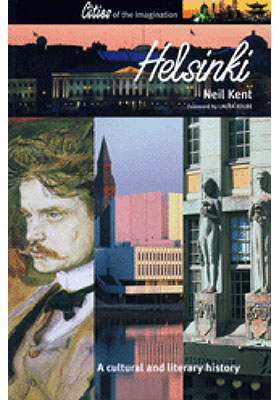Helsinki
A Cultural and Literary History
(赫爾辛基:文化和文學史)
ISBN : 978-190-2669-75-5
Cities of the Imagination Other Distributed Titles
September 2004
266 pages, 5.25″ x 8″
For sale in Hong Kong SAR and Macao SAR only
- HK$175.00
Helsinki is one of the world’s most northerly capitals, but it is by no means a city frozen in Arctic wastes. Situated along the northern shore of the Gulf of Finland, magnificent lakes and forests reach into Helsinki’s urban heart, a rare event in today’s world of suburban sprawl. The Finnish capital offers a spectacular display of architecture and design: from the neoclassical magnificence imposed by a Russian Czar to the modernist chic of Nordic functionalism.
Neil Kent explores the history and culture of the “Daughter of the Baltic”, a small fishing village that became a powerhouse of design and technology. Tracing its dramatic past of conflict and conflagration, he explores the evolution of a national, and urban, identity through architecture, art and writing. Through such differing cultural phenomena as saunas, railway stations and tango, he explains why Helsinki is a distinctive mix of tradition and innovation.
CITY OF ARCHITECTS AND DESIGNERS: Engel, Czar Alexander I and the creation of an imperial metropolis; Alvar Aalto and the birth of the modern.
CITY OF THE ARTS: Sibelius, the national composer; conductors and performers; art galleries and installations; National Romanticism and the Nordic aesthetic.
CITY OF HOSPITALITY: Art Nouveau hotels and cafés; sauna culture; famous visitors and refugees: Lenin and Hitler; multicultural Helsinki and migration.
“The book covers the expected topics . . . . But it also has tales of the unexpected, drawing the reader’s attention to subjects ignored by most mainstream books” —Horisontti

